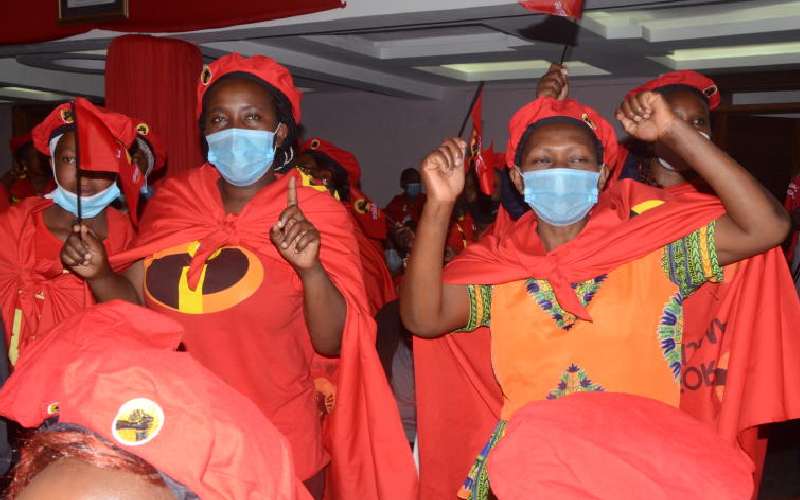×
The Standard e-Paper
Smart Minds Choose Us

Kiambu Deputy governor Joyce Ngugi, Kiambaa Jubilee aspirant Kariri Njama and former Nairobi speaker Betreace Elecha at Havilla Hotel, Ruaka on 26 June 2021.[Standard]
After so many denials of what seemed obvious, a startled Jubilee - or what remains of it - came out to stake its claim to the Kiambaa by-election and by extension, the Central Kenya vote.